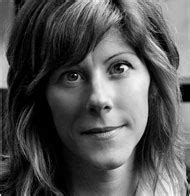A Quote by Elissa Schappell
Dave Eggers is a prince among men when it comes to writing deeply felt, socially conscious books that meld reportage with fiction. While A Hologram for the King is fiction...it's a strike against the current state of global economic injustice.
Related Quotes
Writing fiction is not a profession that leaves one well-disposed toward reading fiction. One starts out loving books and stories, and then one becomes jaded and increasingly hard to please. I read less and less fiction these days, finding the buzz and the joy I used to get from fiction in ever stranger works of non-fiction, or poetry.
Writing fiction is very different to writing non-fiction. I love writing novels, but on history books, like my biographies of Stalin or Catherine the Great or Jerusalem, I spend endless hours doing vast amounts of research. But it ends up being based on the same principle as all writing about people: and that is curiosity!
I've felt pressure to produce long fiction for as long as I've been writing fiction. There's just an incredible bias in the publishing industry toward novels and away from short stories. They're seen as D.O.A. in the marketplace, which seems nuts to me, given that various collections done smashingly and deservedly well in economic terms.
We are on strike, we, the men of the mind. We are on strike against self-immolation. We are on strike against the creed of unearned rewards and unrewarded duties. We are on strike against the dogma that the pursuit of one's happiness is evil. We are on strike against the doctrine that life is guilt.
I guess...on one hand, I spent way too much time watching science fiction and reading science fiction when I was growing up. But a part of it is I also never felt much of a connection to the world in which I lived while I was growing up, and so, oddly enough, I think I felt a lot more connected to the worlds that I read about in science fiction.






































